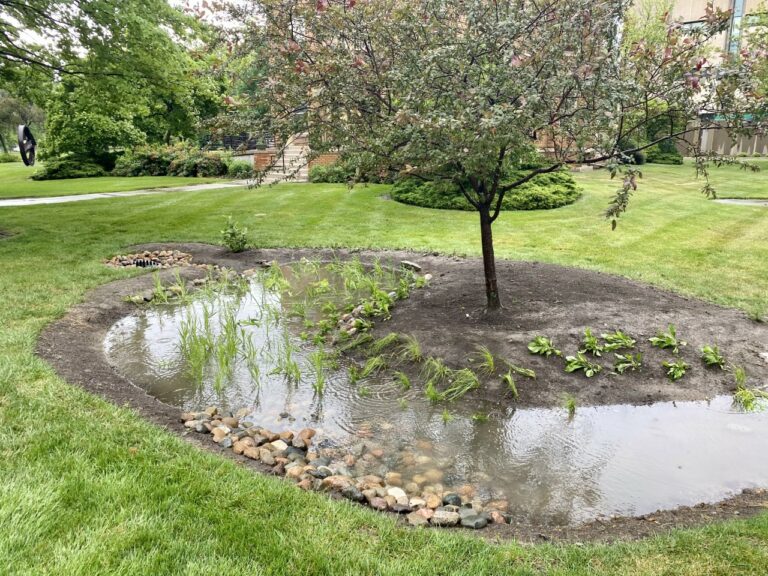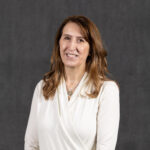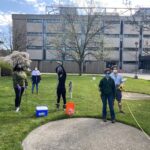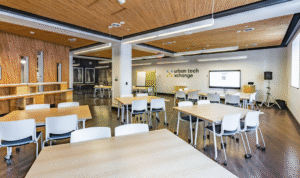
- Kim Kisner
- Education
- 12/12/2023
Applying Education and Advancement to Build a Sustainably Just Community

In April 2022, Wayne State University and the University of Windsor were designated as the United Nations Regional Centre of Expertise (RCE) on Education for Sustainable Development in the Detroit-Windsor region. RCEs are networks of educational institutions, communities, governments, businesses, and other organizations that work together to advance and implement sustainability education within a region.
SBN Detroit talked with  Donna Kashian, Wayne State University professor and director of Environmental Sciences, who is leading the efforts at the university.
Donna Kashian, Wayne State University professor and director of Environmental Sciences, who is leading the efforts at the university.
Q: Tell us about regional centers of expertise.
A: The RCE is a global program. Our designation is somewhat unique in that we are binational. In our case, the US and Canada focus on the shared legacy of the region. The waterway is deeply linked to industry and economics in our area, and the two nations face similar challenges. We’ll work toward enhancing the economy to meet the sustainable era. This involves a large set of goals with a foundation in education.
Part of our work is to bring together community partners and address activities related to sustainable development challenges. So, we are connecting entities such as the Windsor-Detroit Bridge Authority, key individuals within schools and universities, the government, municipalities, and nonprofits to work on collaborative projects toward our goals.
Ultimately, we will utilize these partnerships and networks to support research, training, and participation to move sustainable education forward.
Q: How is this set up?
A: Wayne State University has been very supportive of this effort and has contributed several resources, including support for two graduate students who will serve as sustainability ambassadors to help move things forward.
Through the UN RCE, we are in the process of forming a sustainability council. We are appointing an individual from every unit within the university to report back to this council. Additionally, we will also have an external advisory board to help identify sustainability challenges in the Southeast Michigan region and the Essex region. The fellows will start tackling research and projects that are identified.
Q: I understand that the goal of the UN RCE is to identify actions that address climate change, economic and health disparities, and social inequity to create a more sustainable future. How will you approach this?
A: This is incredibly broad-sweeping and each university will tackle projects differently.
WSU just launched a new five-year sustainability plan, and environmental justice and social inequity are addressed throughout. Many universities don’t include these front and center in their plans, so in this way, I think we can work as an example to advance university sustainability planning as a whole.
Regarding climate change, we recently submitted a $3 million project to tackle climate resilience and flooding – that involves infrastructure and design – in addition to many projects in the community and education around that, which include talking to local middle and high school children. Two of my students and I have an upcoming visit to 6th-grade classes to educate young people on climate change.
So our work involves projects, traditional research plus community education.
Q: What are the benefits to students?
A: Approximately six years ago WSU applied for and received a training grant in urban sustainability which initiated our T-Rust (Transformative Research Urban Sustainability Training) program. This program is wrapping up and has transitioned into the UN RCE.
This program supported 33 graduate students and, to date, ten have graduated with seven master’s degrees and three doctorate degrees. Two of these students have been chosen to work on research and science policy on Capitol Hill. We are training future leaders, and they are walking into really great positions.
The UN RCE designation will help us step into undergraduate opportunities as well, so we can reach more students and start training at an earlier stage.
When the students hear the United Nations designation their ears perk up and are anxious to get involved. Watching the grad students go on to succeed and being able to extend more opportunities to undergrads is huge.
Q: How will this work potentially impact Southeast Michigan businesses?
A: This is one of our big agenda items. Typically, the environmental side of the university, where most of my connections are, has not been as connected as it could be to the business side. We’ve been working in silos. So we are working to form partnerships and do a better job at this.
Q: What other things are you involved in around sustainability?
A: I serve as a US representative for the International Joint Commission’s science advisory board, and next year will serve as president of the International Association of Great Lakes Research (IAGLR). I also am on the Conservation and Environmental Issues Committee – Society of Fresh Water Science, and the Inclusion, Diversity, Equity, and Accessibility+ Committee (IDEA+) committee for IAGLR.
Q: How do these things help drive and shape your work overall?
A: I think it all ties together. People say I’ve taken so much on, but it’s all interconnected and I think it’s about centralizing the work, not creating more. It’s all focused on the health of the Great Lakes and environmental justice. I hope to use and bring my shared resources to the UN RCE.
Q: Where does your passion come from?
A: Growing up, I lived in a Portuguese community in Massachusetts that has a long history of pollution from the textile industry. My family has an extraordinarily high cancer rate. I’ve always loved being outside, and I’ve always been passionate about improving health. I think my drive started there. And then five years ago, I was diagnosed with cancer myself. That has pushed me. The drive was there, but I now have an even stronger desire to push forward.
Q: What is the end game?

A: To live in a society that is just from a sustainable perspective, and to live within a healthy climate and environment.
We clearly cannot accomplish this through the UN RCE alone, but we can move the dial. Training our youth to continue the quest and vote and be aware and knowledgeable will help move the needle for a more just and sustainable future. All of these efforts help to continue to push the needle for our region.
Be sure to subscribe to our newsletter for regular updates on sustainable business practices in and around Detroit.
Kim Kisner
- All
- Business
- Community
- Education
- Events

Eastern Market Partnership, in collaboration with the City of Detroit’s Office of Sustainability Urban Agriculture Division, has announced $240,000 in grant funding to support Detroit-based farmers and farmer collectives. The grants will advance food access, climate education, sustainable land use, and economic opportunity, with priority given to Black- and Indigenous-led farms, youth-led initiatives, and projects rooted in historically disinvested neighborhoods. The recipients – ranging from cooperatives and community...

Citizen Robotics is a Detroit-based nonprofit that advances the use of robotics and digital manufacturing in residential construction, focusing on improving productivity, sustainability, and long-term affordability. Best known for its early work in 3D-printed housing, it explores how alternative construction methods and new financial models can reduce material waste, lower lifetime operating costs, and enhance the resilience of homes. SBN Detroit interviewed Tom Woodman, founder and president of...

Detroit-based OneSix Energy is a clean-energy technology company focused on advancing a lower-carbon approach to hydrogen production. Headquartered at Newlab in Detroit, the startup is developing a proprietary methane pyrolysis system designed to produce hydrogen without carbon dioxide emissions, while also generating solid carbon as a co-product. SBN Detroit interviewed with cofounder Stefan Sysko about the company’s origins, its approach to hydrogen production, and why Detroit is positioned...







